AMD Ryzen 9 9950X3D: Performance Reviewed
Just a few months after the AMD Ryzen 7 9800X3D graced us with its presence, the Ryzen 9 9950X3D brings its 3D V-Cache technology to a 16-core, 32-thread gaming processor. This powerhouse is designed to keep pace with formidable graphics cards like the Nvidia RTX 5090 and beyond. However, with its high $699 price tag and a 170W power budget, the Ryzen 9 9950X3D is a niche choice, best suited for those building an exceptionally powerful and expensive gaming PC. For most users, the Ryzen 7 9800X3D offers a more practical solution.
Purchasing Guide
The AMD Ryzen 9 9950X3D becomes available starting March 12, with a suggested retail price of $699. Keep in mind that AMD's processor prices can vary based on market demand.
AMD Ryzen 9 9950X3D – Photos
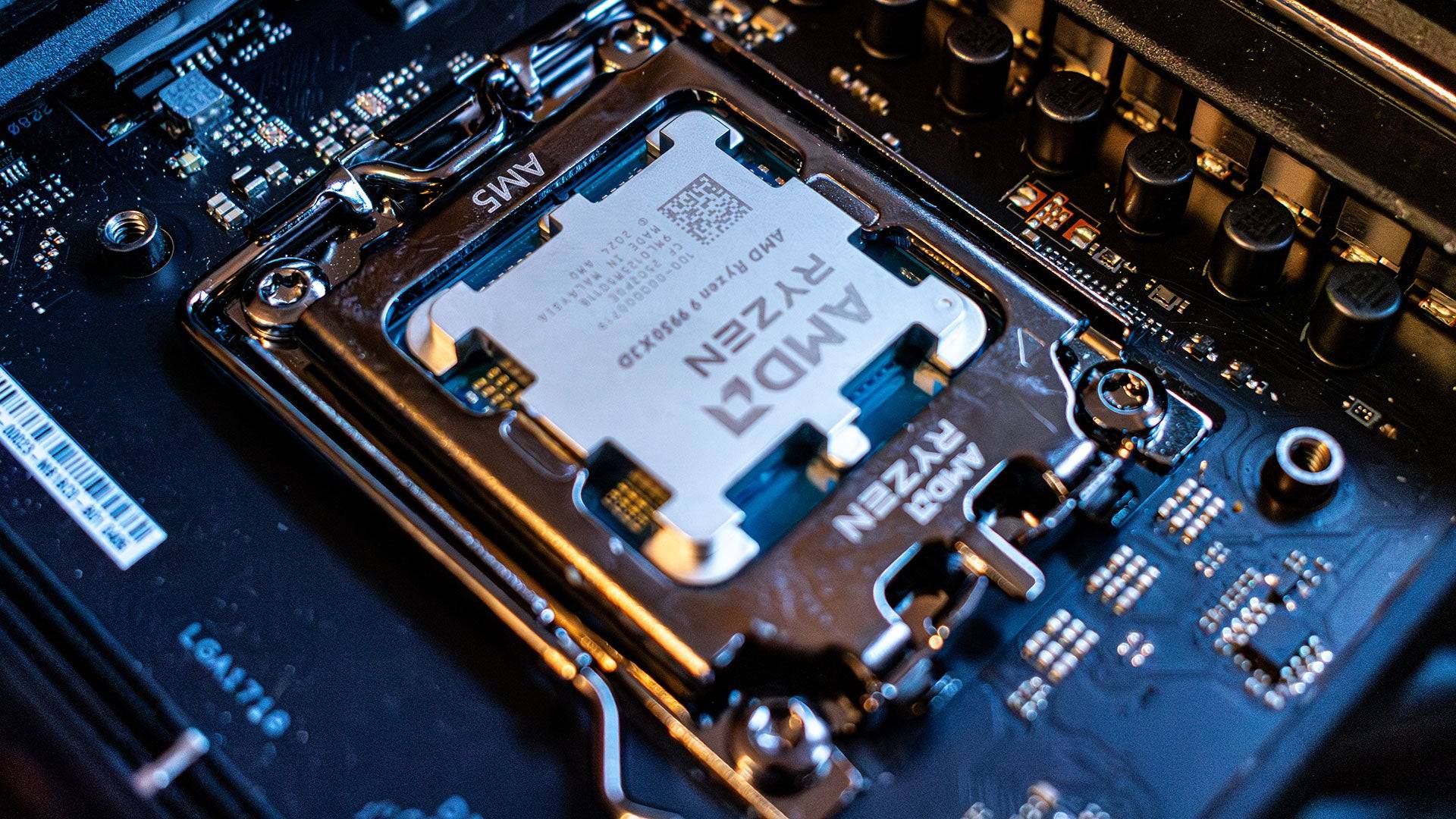
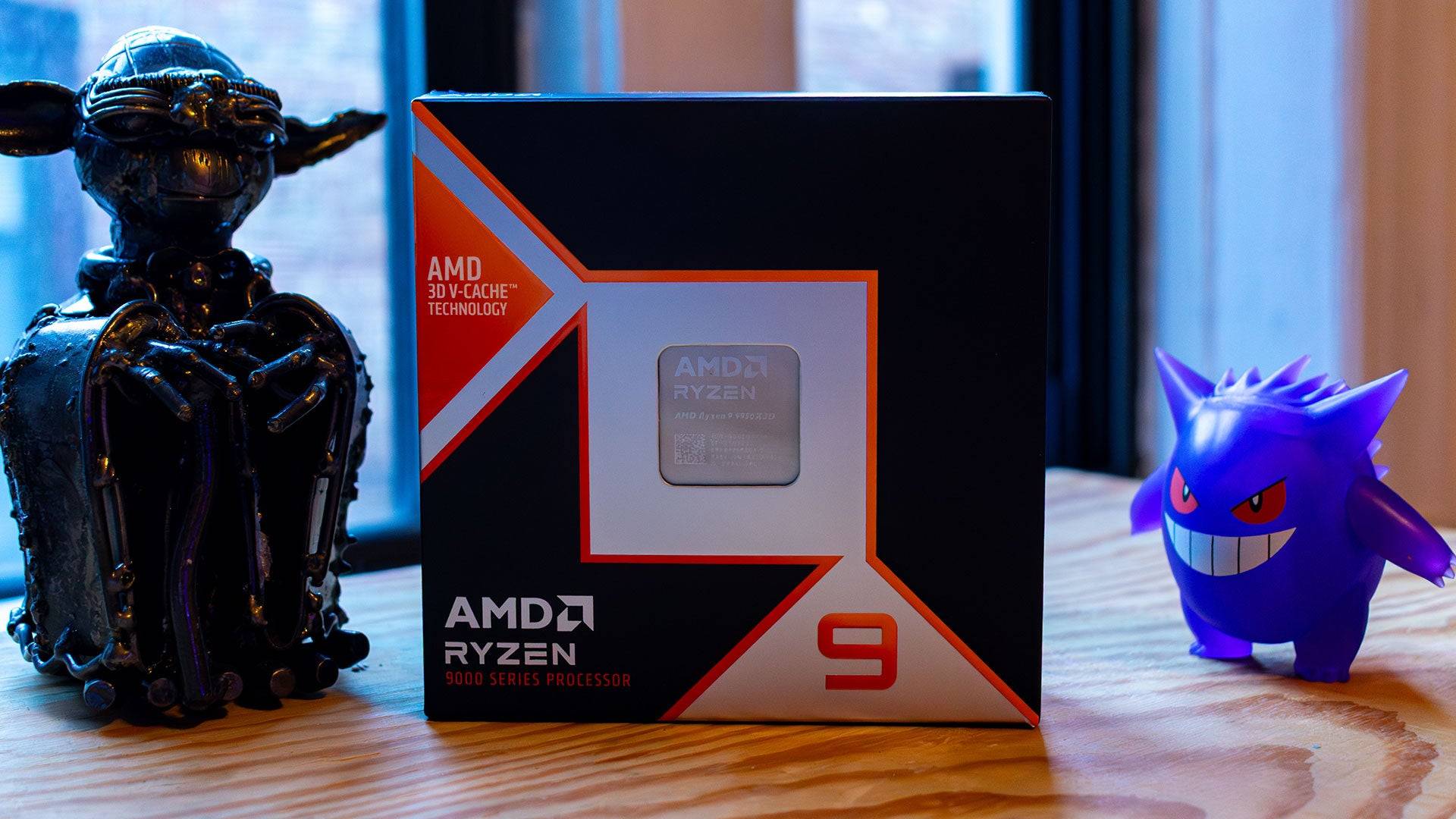 3 Images
3 Images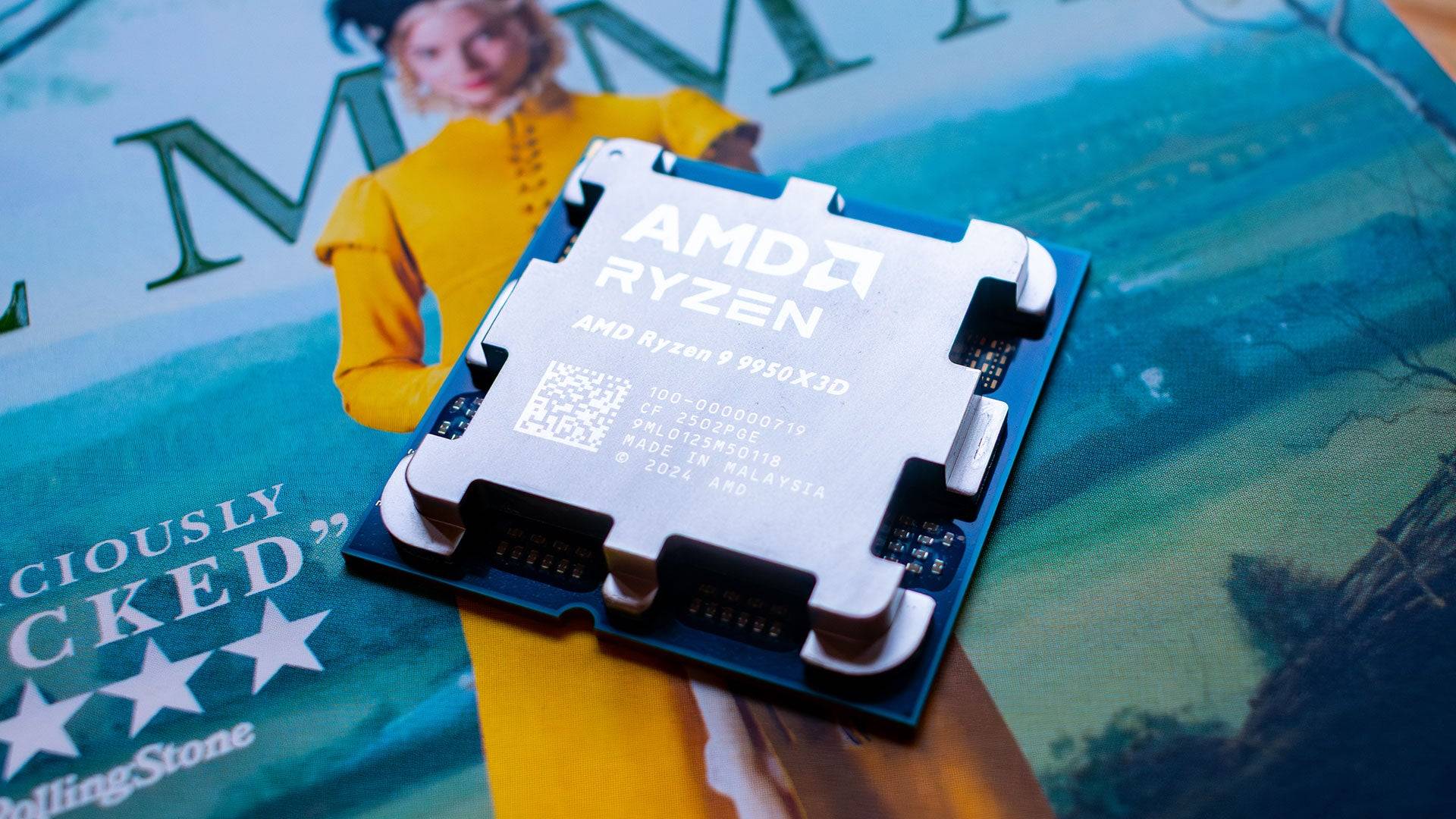
Specs and Features
The AMD Ryzen 9 9950X3D combines the Zen 5 cores of the regular 9950X with the 2nd-generation 3D V-Cache technology introduced in the Ryzen 7 9800X3D. This results in superior multi-core performance and enhanced gaming capabilities due to increased cache size.
Unlike its predecessor, the Ryzen 9 7950X3D, the 3D V-Cache in the 9950X3D is positioned beneath the CPU cores. This seemingly minor change significantly improves thermal performance. The Core Complex Die (CCD), the primary heat source, is closer to the Integrated Heat Spreader (IHS), allowing for more efficient heat dissipation. This thermal advantage enables the Ryzen 9 9950X3D to maintain higher performance levels over extended periods.
The strategic placement of the cache below the CPU cores also reduces data travel distance, minimizing latency. Furthermore, the 9950X3D boasts a substantial 144MB of combined L2 and L3 cache, matching the previous generation's Ryzen 9 7950X3D and surpassing non-X3D processors.
Both the AMD Ryzen 9 9950X and 9950X3D share a 170W TDP, although the original 9950X can achieve a higher peak power threshold. In my tests, both processors hit a peak of 200W, but the 9950X3D exhibited lower peak temperatures, reaching only 79°C on a different cooler compared to the original 9950X.
Since the 9950X3D does not require a new chipset, it is compatible with any AM5 AMD motherboard. AMD has confirmed support for this socket until at least 2027, ensuring long-term platform viability.
AMD Ryzen 9 9950X3D – Benchmarks
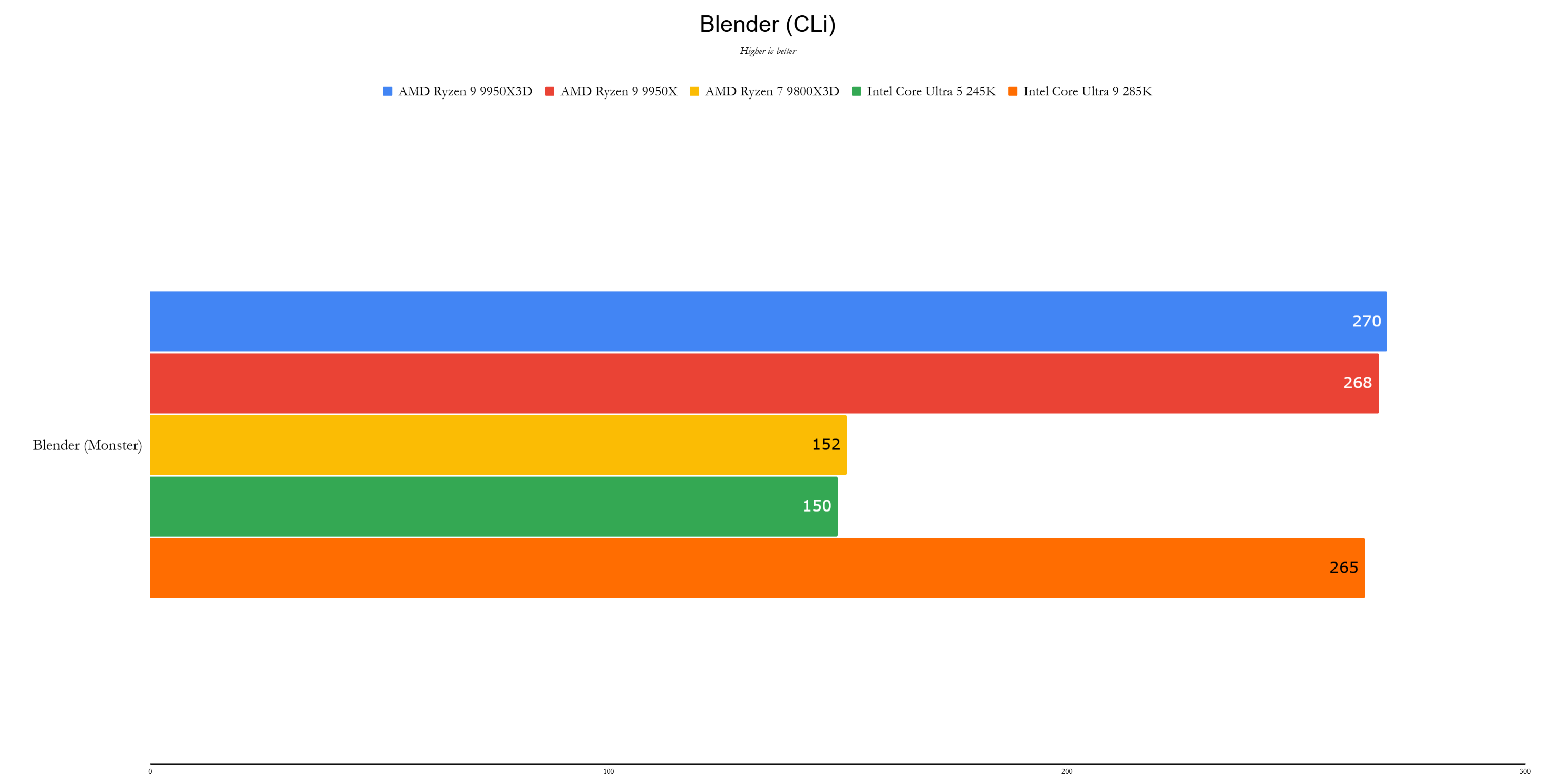
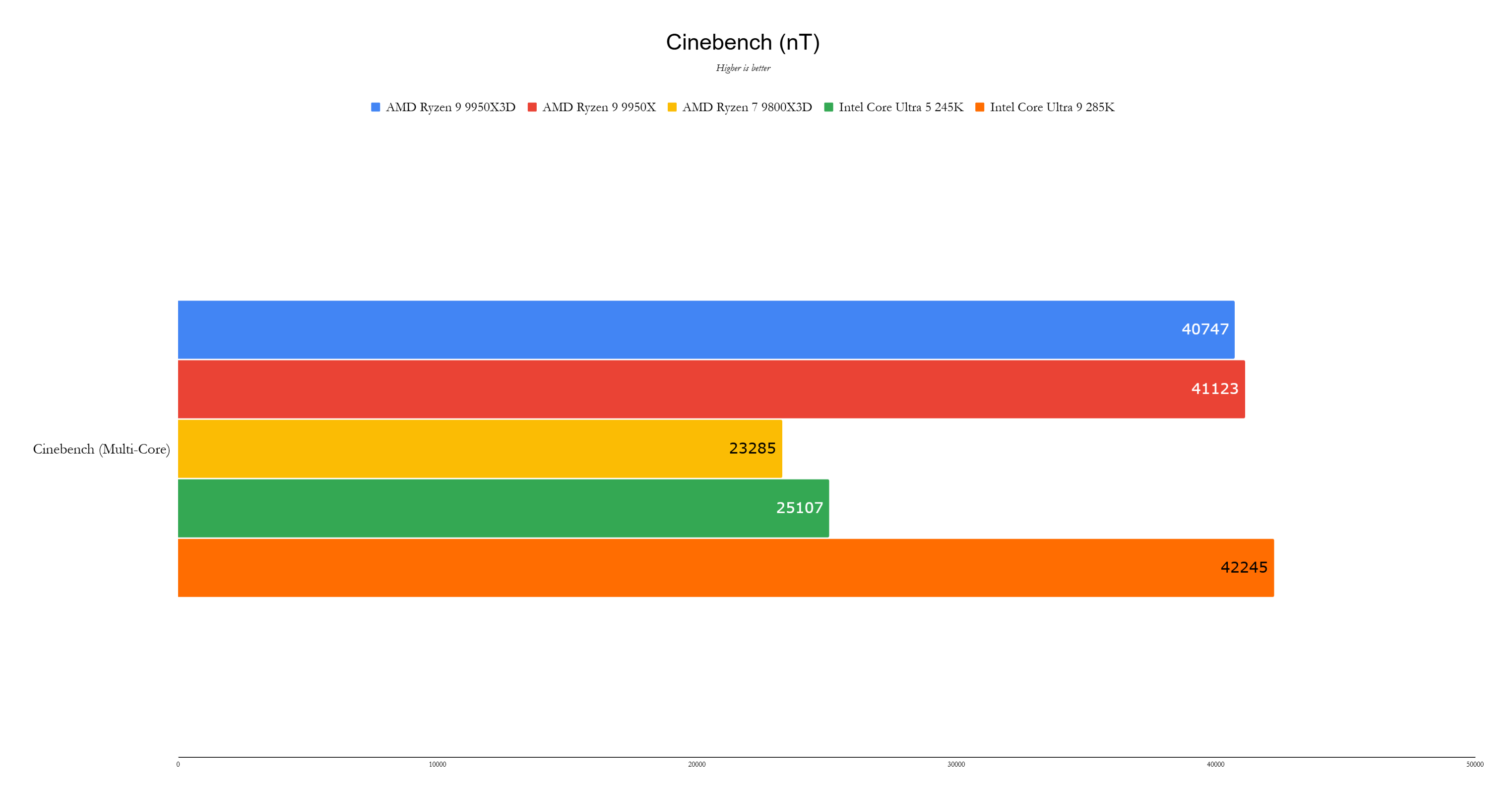 11 Images
11 Images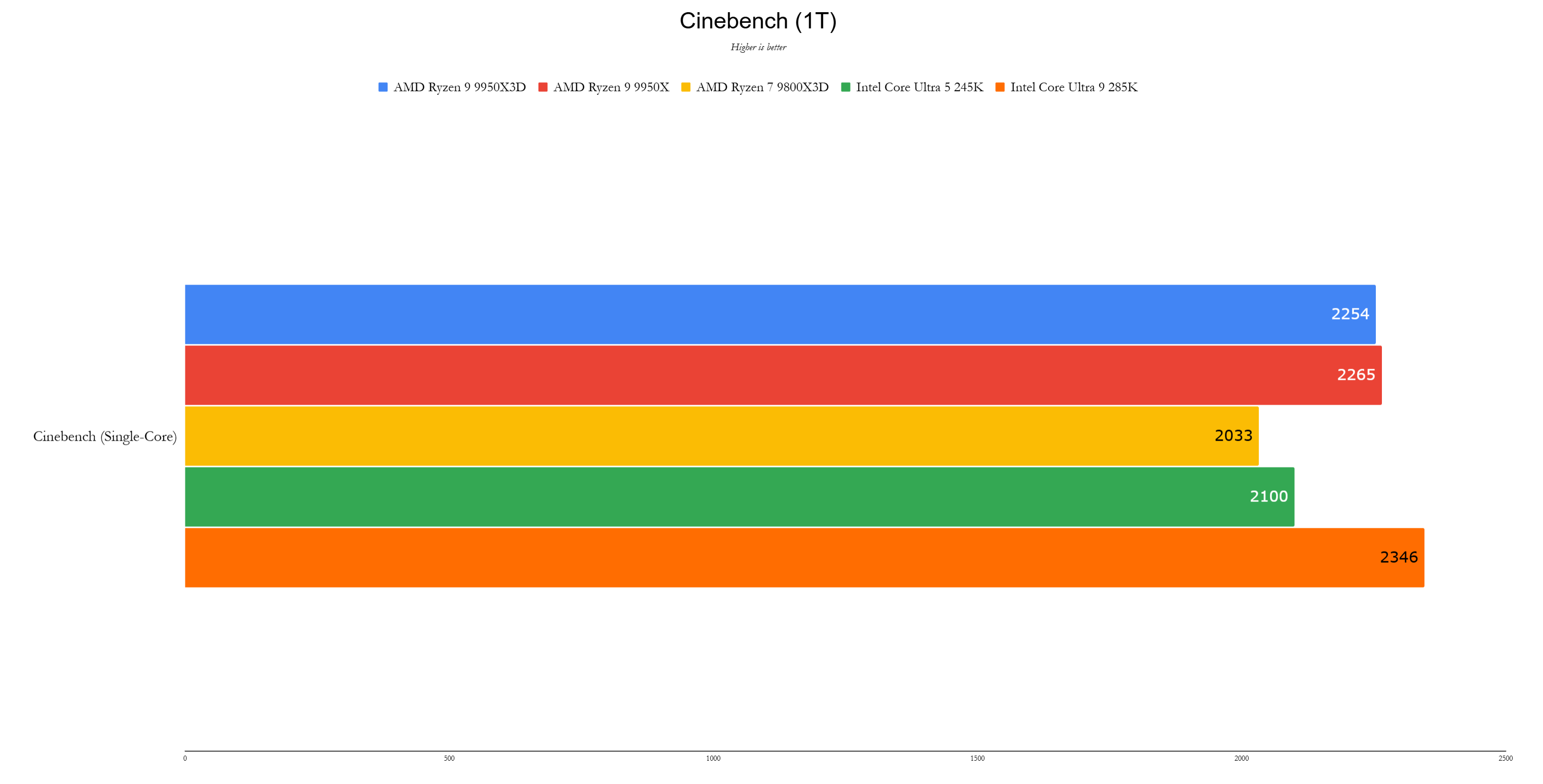
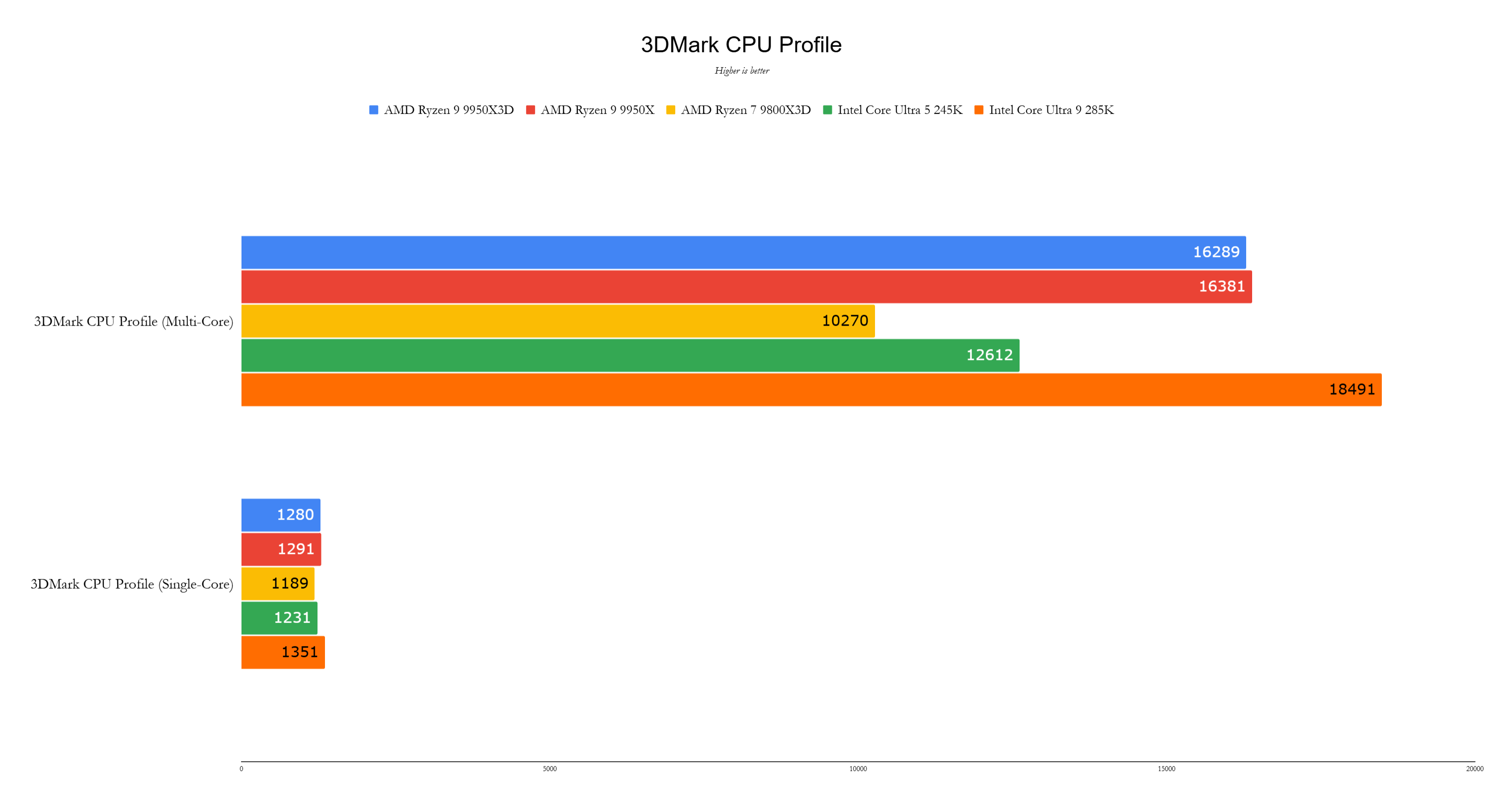
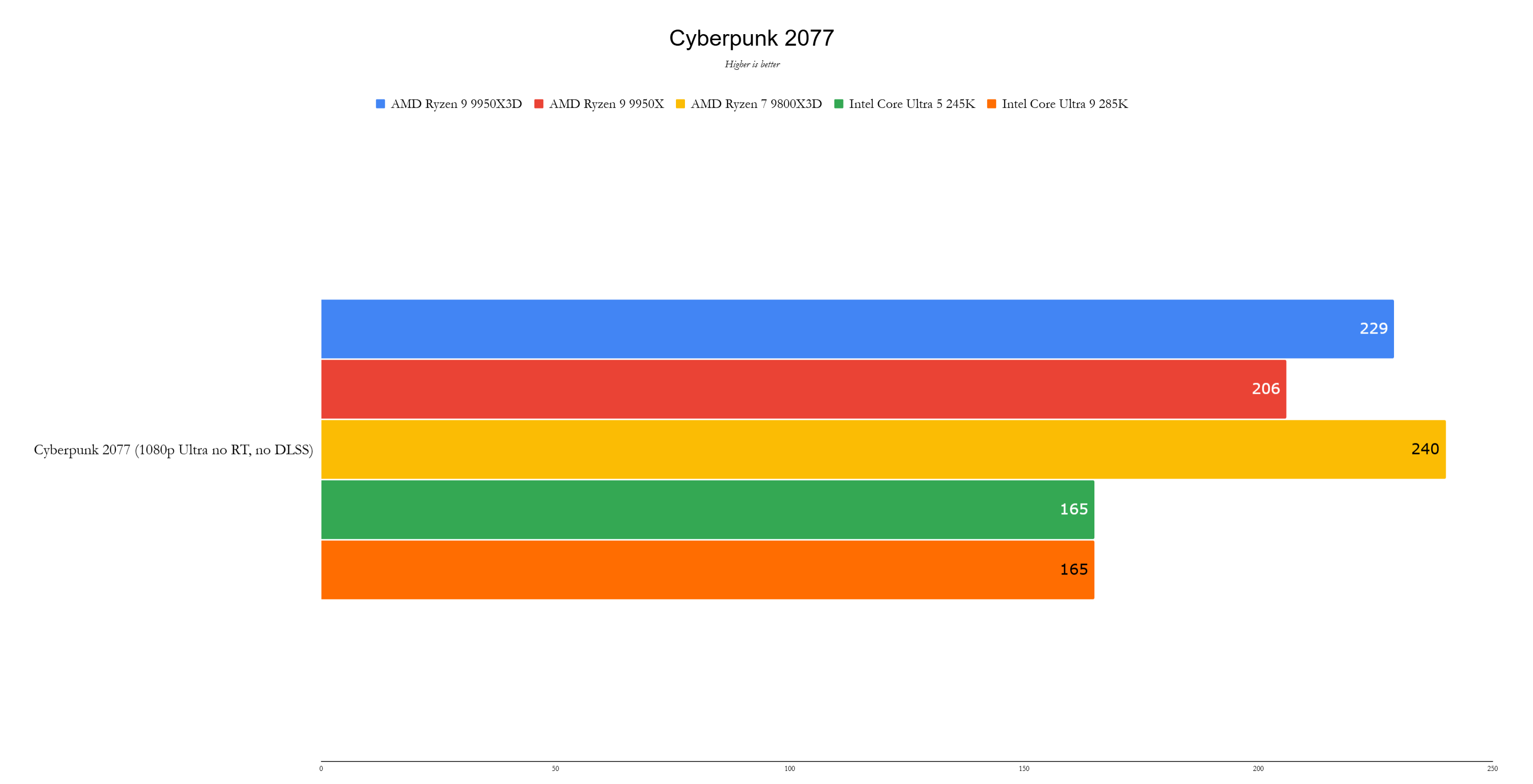
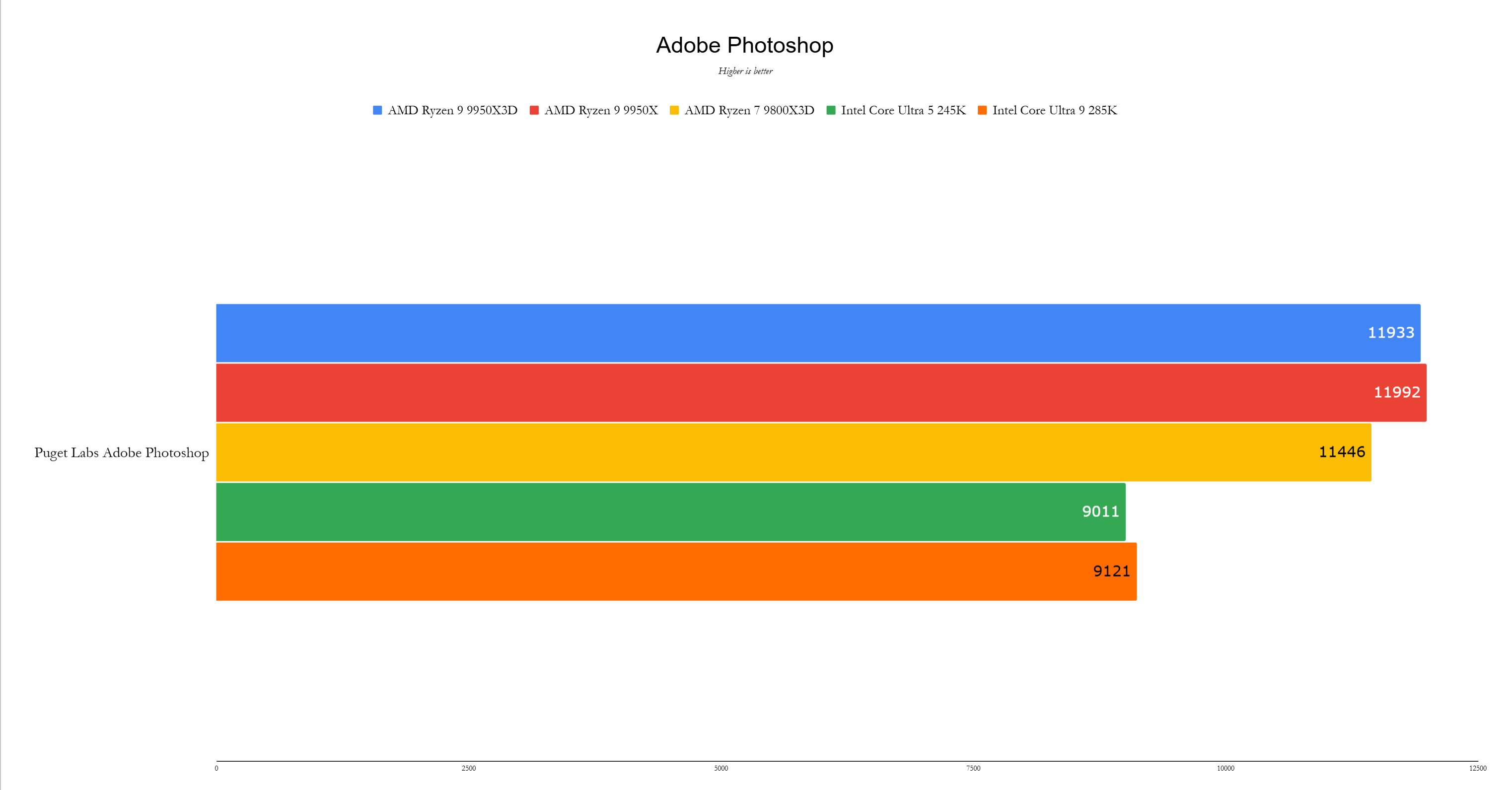
Performance
Before discussing performance results, it's important to note that all CPUs were tested on identical hardware setups, except for the Ryzen 9 9950X, which was evaluated on an Asus ROG Crosshair X670E Hero motherboard with a Corsair H170i 360mm AIO cooler. While this variation may influence performance, the impact is expected to be minimal since all tests were conducted at stock settings.
AMD Test bench:
GPU: Nvidia GeForce RTX 4090
Motherboard: Asus ROG Crosshair X670E Hero; Asus ROG Crosshair X870E Hero (9800X3D)
RAM: 32GB G.Skill Trident Z5 Neo @ 6,000MHz
SSD: 1TB PNY CS3140 Gen4x4 NVMe SSD
CPU Cooler: Asus ROG Ryujin III 360 ARGB Extreme
This setup change occurred due to a mounting screw issue with the Asus ROG Ryujin III 360mm cooler during the transition to the 9950X. I plan to retest the processors in the coming weeks and will update this section if significant differences arise.
The AMD Ryzen 9 9950X3D, with its 16 cores, 32 threads, and 144MB of cache, showcases exceptional power. Even in creative benchmarks where the 9800X3D lagged, the 9950X3D competes effectively with top-tier chips.
Intel Test Bench:
GPU: Nvidia GeForce RTX 4090
Motherboard: Asus ROG Maximus Z890 Hero (200S); Asus Prime Z790-A (14th-Gen)
RAM: 32GB Corsair Vengeance DDR5 @ 6,000MHz
SSD: PNY CS3140 1TB Gen 4 x 4 NVMe SSD
CPU Cooler: Asus ROG Ryujin III 360 ARGB Extreme
The 9950X3D performs remarkably well against the 9800X3D in single-core workloads. In Cinebench 1T, it scores 2,254 points compared to the 9800X3D's 2,033 points, representing a 10% improvement. In the 3DMark CPU Profile test, the 9950X3D achieves 1,280 points, closely trailing the Intel Core Ultra 9 285K's 1,351 points.
In multi-threaded workloads, the Ryzen 9 9950X3D excels, scoring 40,747 points in Cinebench's multi-core test. While it slightly underperforms compared to the 9950X (41,123 points) and Intel Core Ultra 9 285K (42,245 points), the trade-off enhances its gaming performance.
In gaming benchmarks, the 9950X3D shines in Total War: Warhammer 3 at 1080p with Ultra settings, achieving 274 fps with the RTX 4090, outperforming the 9800X3D (254 fps) and the Core Ultra 9 285K (255 fps). However, in Cyberpunk 2077 at 1080p with the Ultra preset and ray tracing disabled, it delivers 229 fps, slightly less than the 9800X3D's 240 fps but significantly better than the Intel processor's 165 fps.
Overkill?
The AMD Ryzen 9 9950X3D stands out as one of the most powerful gaming processors available, yet it may not be the best choice for everyone. The Ryzen 7 9800X3D, priced at a more accessible $479, meets the needs of most gamers effectively.
The 9950X3D is particularly suited for users who engage in both gaming and creative applications like Photoshop and Premiere, where it offers a 15% performance boost over the 9800X3D. For those focused solely on gaming, however, investing the $220 difference in a superior graphics card might be a wiser decision.
Related Articles
Latest Articles




![Taffy Tales [v1.07.3a]](https://imgs.anofc.com/uploads/32/1719554710667e529623764.jpg)


























